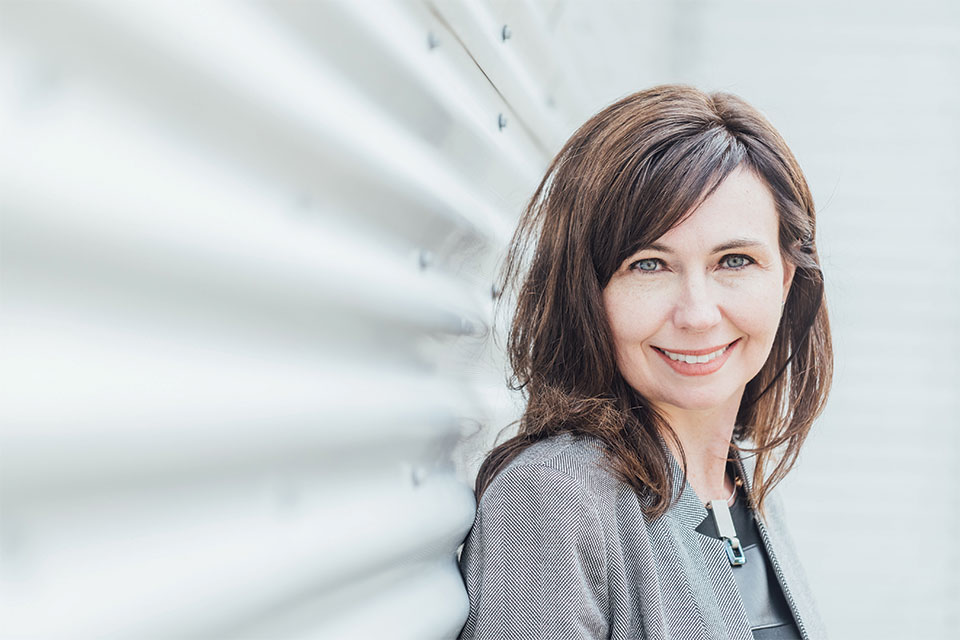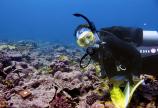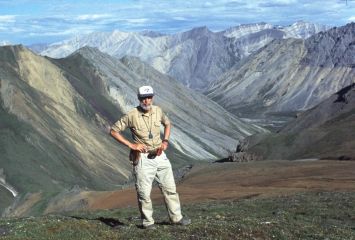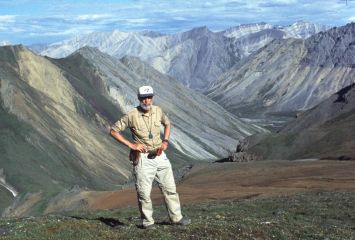Ocean scientist focuses on climate solutions
- Jennifer Kwan

Marine ecologist and conservation biologist Julia Baum spent the early part of her career studying the impacts of commercial fishing on oceanic sharks and assessing the health of global fisheries. But a pivotal exploration near the Earth’s equator changed her research focus forever.
The expeditions were at the Pacific Ocean coral atoll of Kiritimati or Christmas Island during and in the aftermath of the 2015-2016 El Niño. Heat stress from that El Niño event triggered the third-ever global coral bleaching event, causing mass coral bleaching and mortality on reefs around the world. Christmas Island, where Baum has worked for more than a decade, was the event’s epicentre.
What Baum saw struck her to the core. “It was a wake-up call. Up until then, I believed that overfishing was the greatest threat to the world’s oceans,” she says.
Seeing a marine heatwave destroy an entire ecosystem in just a few months confirmed that there were larger, more devasting forces at play. I knew then I needed to transform my research program to centre on climate change.
—Julia Baum, UVic marine ecologist and conservation biologist
For her research and teaching excellence, Baum has been awarded UVic’s President’s Chair Award, the university’s highest academic honour for a faculty member. She receives the award also for her superior research engagement in support of the Strategic Framework.
Research-inspired teaching
Baum and her students conducted ground-breaking research on the impact of climate change on coral reefs during the El Niño on Christmas Island. She witnessed firsthand entire reefs turned into “coral graveyards,” as reported widely in the Canadian media and beyond including the Times Colonist, CBC’s Quirks & Quarks, The Associated Press, The Atlantic, Science magazine and The Guardian.
In research published late last year in Nature Communications based on this work, Baum saw signs of hope in the face of this climate crisis. She believes the message of hope is vital to impart to her students and the public. With her award, Baum has developed a new interactive course that focusses not only on how climate change is altering our oceans, but on solutions to ensure healthy future oceans.
“It’s important not only that students are informed, critical thinkers about climate change, but also that they feel inspired to create solutions and be part of the change we need,” says Baum.
If we despair about climate change, we’ve already lost the battle. We need optimism and courage to tackle this grand challenge.
—Baum
Baum has been giving talks to the public about the need for climate change action.
Kieran Cox, who is now completing his PhD at UVic in biology, was part of Baum’s Kiritimati field team, which comprised several expeditions with around six students each time working in the field for up to a month. The days were long, meticulously planned and everyone knew their role. As an undergraduate student at the time, the experience was transformative, says Cox.
“I was a wide-eyed, enthusiastic, albeit somewhat naive, undergraduate student. I learned what it feels like to work at the forefront of a field and tackle the critical, emerging environmental challenges,” recalls Cox. “Working under Julia’s supervision was vital for me gaining an understanding of what it means to strive for and achieve career excellence.
She is passionate, innovative, dedicated—and tough. This approach resonates with me to this day.
—Kieran Cox, UVic PhD student
A voice that matters
Making change means having a voice. As a globally recognized scholar, Baum is a recipient of more than 20 fellowships and awards including the E.W.R. Steacie Memorial Fellowship from the Natural Sciences and Engineering Research Council of Canada and the Pew Fellowship in Marine Conservation. Baum is also a member of the Royal Society of Canada’s College of New Scholars, Scientists and Artists.
Using her voice and critical research—and by encouraging her students to do the same—Baum is focused on research that transcends disciplines and borders to create establishing deeper connections in British Columbia and assessing how climate change is reshaping temperate ecosystems. “With the President’s Chair, I’m excited to shift focus towards climate solutions research that will help ensure a healthy future for Canada’s oceans.” she says.
This approach also factors equity, diversity and inclusion into science. As a “first-generation” academic and woman in science, Baum is keenly aware of the obstacles that remain in the system. “Climate change is the defining issue of our time—we need all the talent at the table to solve it. This will only be possible if we address the structural inequities that persist in academia—and beyond,” says Baum.
Photos
In this story
Keywords: award, research, climate, oceans, sustainability, administrative, community, international, student life
People: Julia Baum, Kieran Cox
Publication: The Ring







